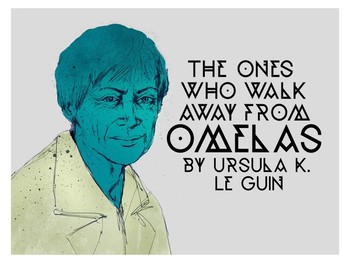


Yes, what I'm trying to say is that even if we think there's only one answer to that, we are contradicting ourselves. But they seem to know where they are going, the ones who walk away from Omelas."So what the question boils down to - does the benefit of many outweigh the suffering of few? You think you have your answer ready? Is it a resounding NO! coming from the bottom of your outraged heart? I hope it is. " The place they go towards is a place even less imaginable to most of us than the city of happiness. Except for a few who, against all the reason, think of the child and decide to walk away from Omelas into the unknown walk away from the happiness of many built on the suffering of one. But for reasons unspecified, the happiness of all others depends on the suffering of a small child confined in the dark, unloved, malnourished and dirty with its own feces. It just a few pages she asks us to conceive of a utopia, a place where everyone enjoys happiness, the lovely place. Le Guin brings up in her very short 1973 story The Ones Who Walk Away from Omelas. And hold your loud and resounding and outraged NO! for a minute.Ī background - this is what the brilliant Ursula K. Is the happiness of thousands worth the suffering of a single innocent person? Of one innocent child? Think about that. The Hainish Cycle reflects the anthropologist's experience of immersing themselves in new strange cultures since most of their main characters and narrators (Le Guin favoured the first-person narration) are envoys from a humanitarian organization, the Ekumen, sent to investigate or ally themselves with the people of a different world and learn their ways. Her interest in non-Western philosophies was reflected in works such as "Solitude" and The Telling but even more interesting are her imagined societies, often mixing traits extracted from her profound knowledge of anthropology acquired from growing up with her father, the famous anthropologist, Alfred Kroeber. She was known for her treatment of gender ( The Left Hand of Darkness, The Matter of Seggri), political systems ( The Telling, The Dispossessed) and difference/otherness in any other form. Her recent publications include the novel Lavinia, an essay collection, Cheek by Jowl, and The Wild Girls.


Le Guin published twenty-two novels, eleven volumes of short stories, four collections of essays, twelve books for children, six volumes of poetry and four of translation, and has received many awards: Hugo, Nebula, National Book Award, PEN-Malamud, etc.


 0 kommentar(er)
0 kommentar(er)
